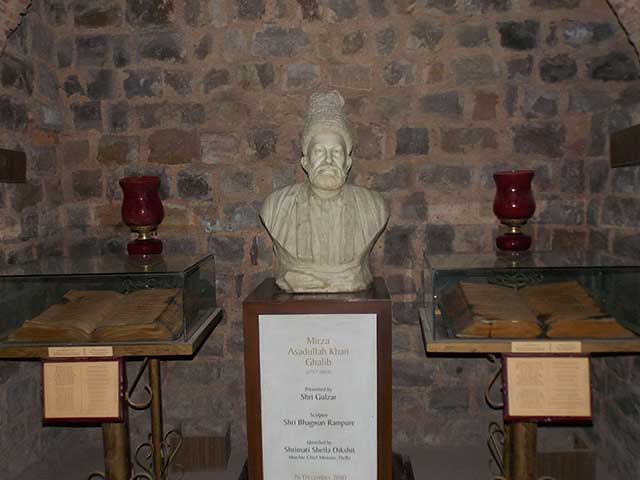He began writing poetry at the age of 12, under the pen name ‘Asad’, meaning a lion. He later changed it to Ghalib, which means ‘the conqueror’. And true to the name, he has conquered the world of poetry with his Urdu verse.
Mirza Ghalib needs no introduction. The stalwarts have compared him to Shakespeare. And every group of friends has called a forlorn or verbose member as Ghalib. If someone conveys a message or expresses something, as mundane as the thickness of a gravy, in poetry, friends immediately call him Ghalib.
And that was the power of his poetry. He conveyed the most complex emotions and subtleties of human existence, and brought them to the masses. Urdu poetry was no longer guarded in the ivory towers.
It is no wonder that he became a recurrent figure in popular culture. Tom Alter has played Ghalib in a play of the same name since 2008. Many TV series, documentaries and films have tried to echo his life, in an attempt to understand the poetic genius.

Contrary to conventional practise, he never sent his poetry for peer review. He was not a disciple or follower of any senior poet. He wrote about himself as an observer of men.
It was his observations and their rendition in verse which touched the heart of all who read them. In one of his letters, Ghalib describes his marriage as the second imprisonment after the initial confinement that was life itself. The idea that life is one continuous painful struggle which can end only when life itself ends, is a recurring theme in his poetry.
He wrote, “Bas kedushwaarhai, harkaam ka aasaanhona, Aadmikobhimuyassarnahi, insaanhona”.
It is difficult for all work to be easy, as difficult it is for man to be human. These lines reverberate through human history at every act of inhumanity, whether it is the rape of a girl, or the condition of Rohingya Muslims. He has encapsulated the fleeting nature of humanity from mankind.
A treasure trove of such verses weaved magic from his pen. His philosophical and existential poetries will remain timeless and universal.
Read Also: Did You Know These Astonishing Facts About India’s Mathematical Genius, Srinivasa Ramanujan













